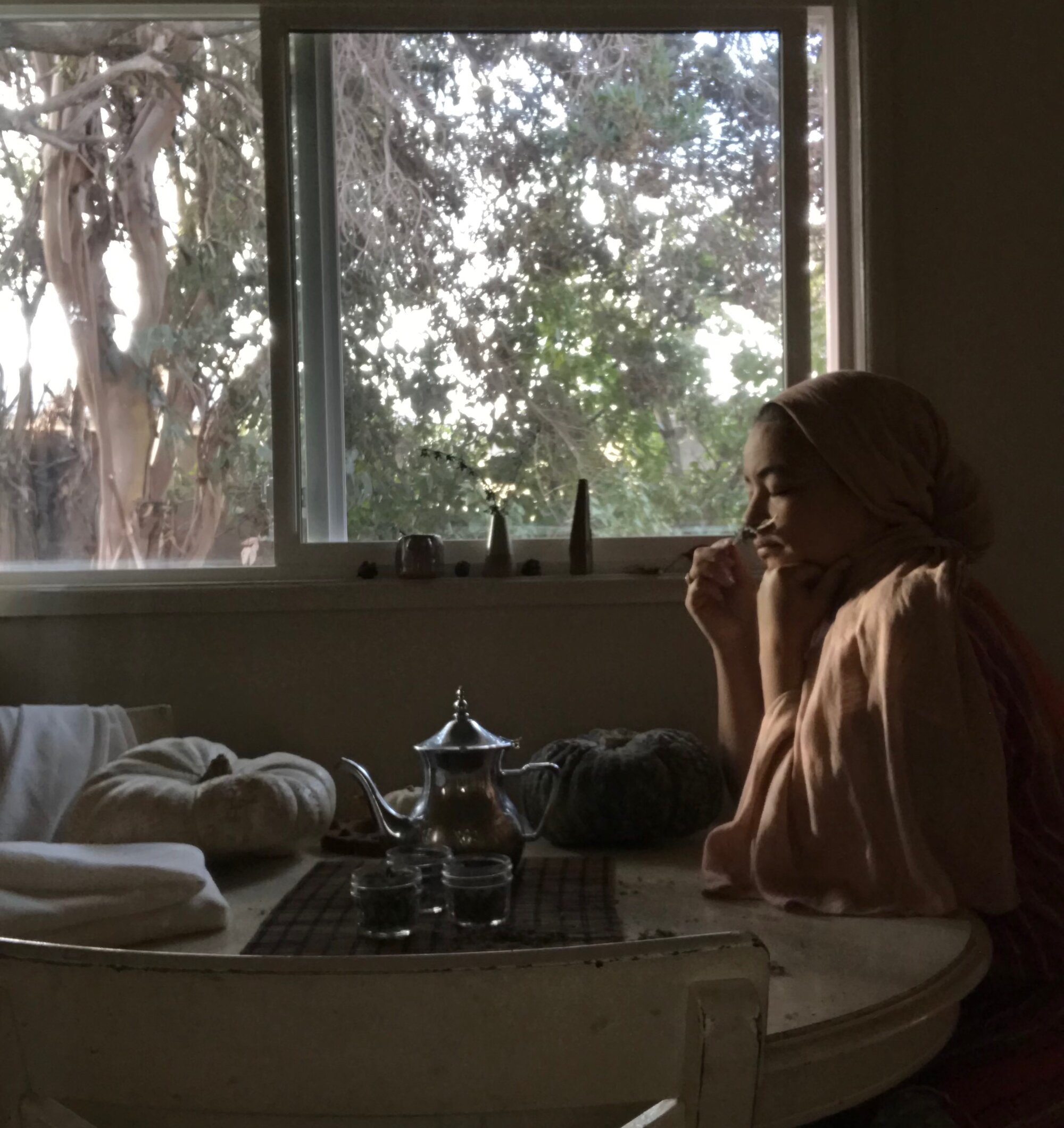
ASHLEY MAY | CHASING WILD ONES
Ashley May is an independent educational consultant living with her husband and two little boys in Los Angeles, California. Her Instagram feed is filled with glimpses of her life—often from the vantage point of her kitchen. Here’s more from Ashley on motherhood and resistance, cooking and ancestry, and how her faith inspires and informs her simplicity.
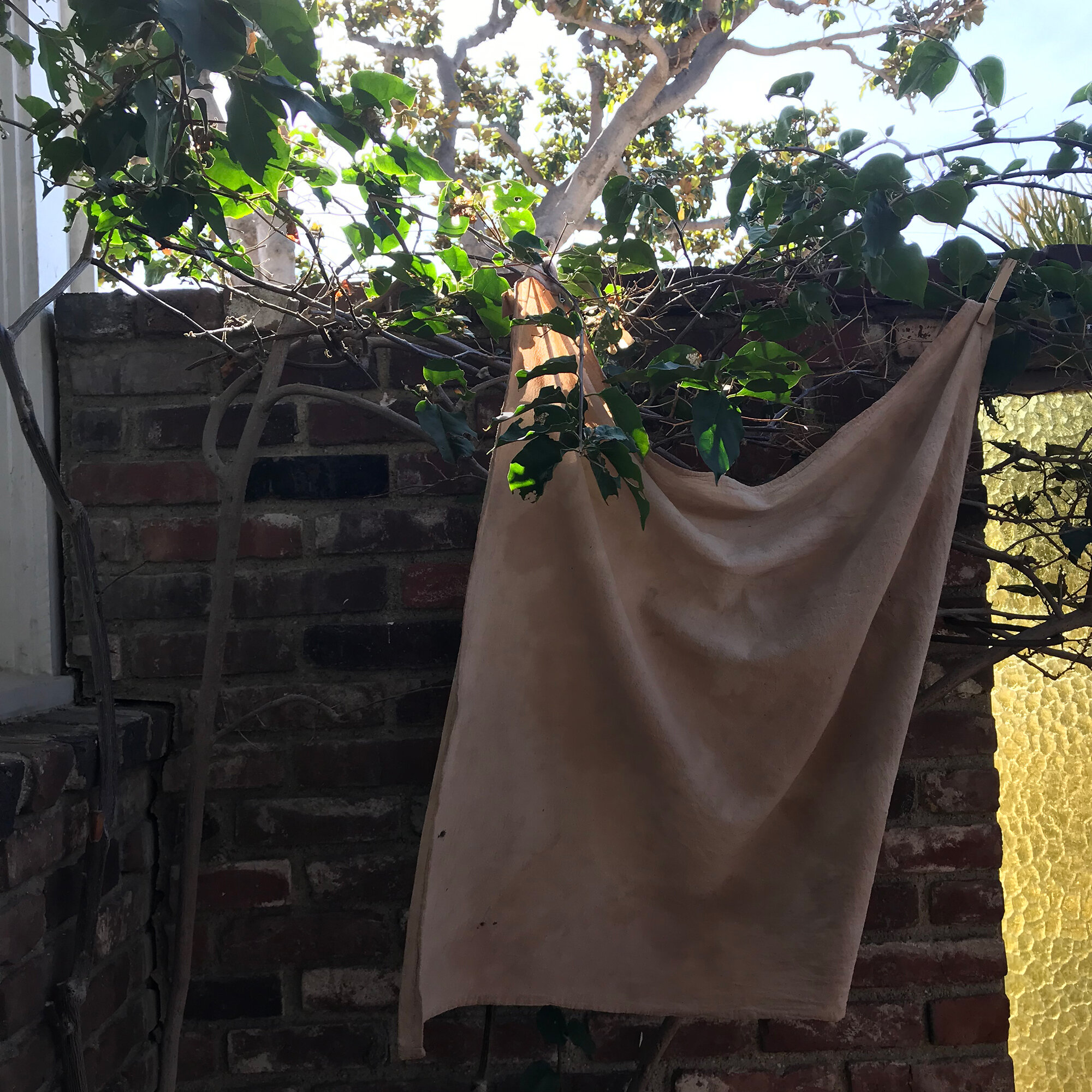
ERIN: Let’s start with you sharing a bit about yourself with RMTL readers who might not be familiar.
ASHLEY: Together with my husband and two small boys, I live in Los Angeles in a sweet bungalow nestled in the most perfect spot between the beaches of my childhood and the tree lined hillsides my sons have grown to love. I am an educational researcher by training and currently take on just enough projects to keep my toes wet in the waters of my field while balancing life with one child in school and one home with me. I guess I carry a certain degree of privilege in the sense that children are my work in this world and while the days often feel so long before I can sit quietly at my desk to work, not a moment with my children escapes without inspiring me to think in new ways about educational research and practice. We live a simple life, together, with beauty and intention. By choice, necessity, and often tradition.
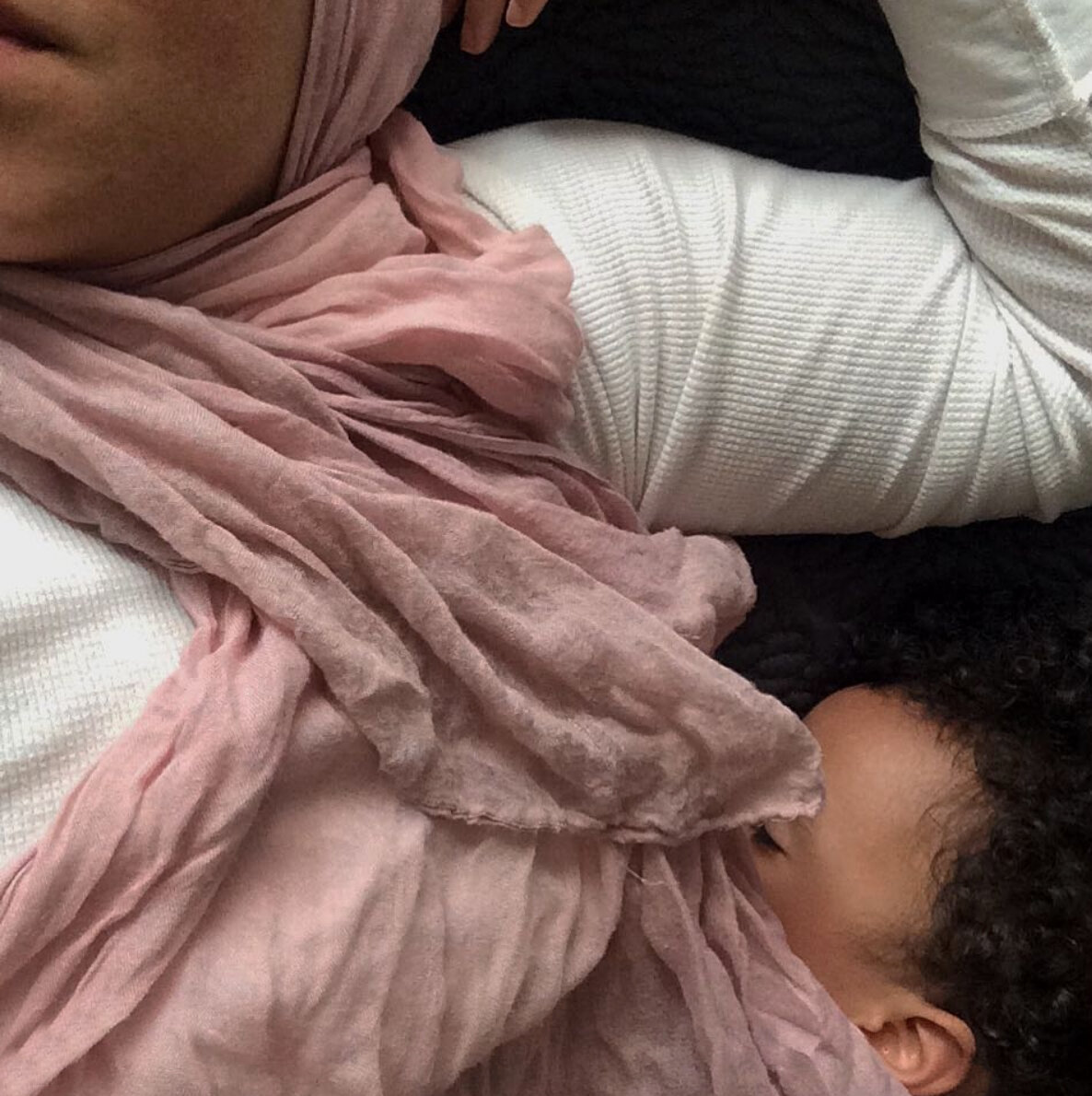
ERIN: I tend to feature folks in this series whose work I’ve followed online, so by default, the interviews tend to focus on people who share snippets of their life publicly. In your Instagram profile you describe your work there as “archiving joy and motherhood as an act of resistance.” Can you describe what you mean and why that’s important to you?
ASHLEY: My work has always centered children like me—or the child I once was—children like my children and any little one that navigates this world in otherness. As an ethnographer working in education, I find great excitement in documentation, storytelling, and narratives that create foundations for critical discourses about children. Now, when I became a mother, my intellectual curiosities shifted slightly. Naturally, I guess. And, as my babies grew, worry took over. I wondered how they would navigate a world that I felt would never really see them for all the beauty they hold, and from there a deep desire to understand what it means to mother from my position, and the act of situated mothering in general, grew. I think it was a good thing. So, I began to document my motherhood and the many ways in which I lean on infusing joy and love of self into the moments I share with my children.
Gradually, I found myself wanting to push the discussion further on the movements that pour back into us, into our families, into our communities. Us meaning black and brown mothers that don’t have the time or the energy to be visible activists. Black and brown mothers who protect their energy and space as an act of self preservation. I wanted to know what our movements look like. Are they silent? Are they invisible? And if so, is that still a movement? Of course it is. But, is that widely understood? I don’t know that it is. So, I want to the tell the story of the movements that liberate Black and brown mothers, the movements that give us life. For me, that is best seen in moments with my two sons. Embracing them, loving them, teaching them to love themselves—the parts we share and the parts we don’t share. Because although my children and I both identify as Black, we are ethnically different from each other in many ways. Our family histories, same but different. So, I am learning to parent all the parts of them. And I hold a special place in my feed for that. Most importantly, for me and for other mothers, like me, who need to see it. And lastly, for women who don’t necessarily hold complex identities in their hearts, but may need a healthy dose of perspective. A reminder that the sun doesn’t rise and set on their joy alone.
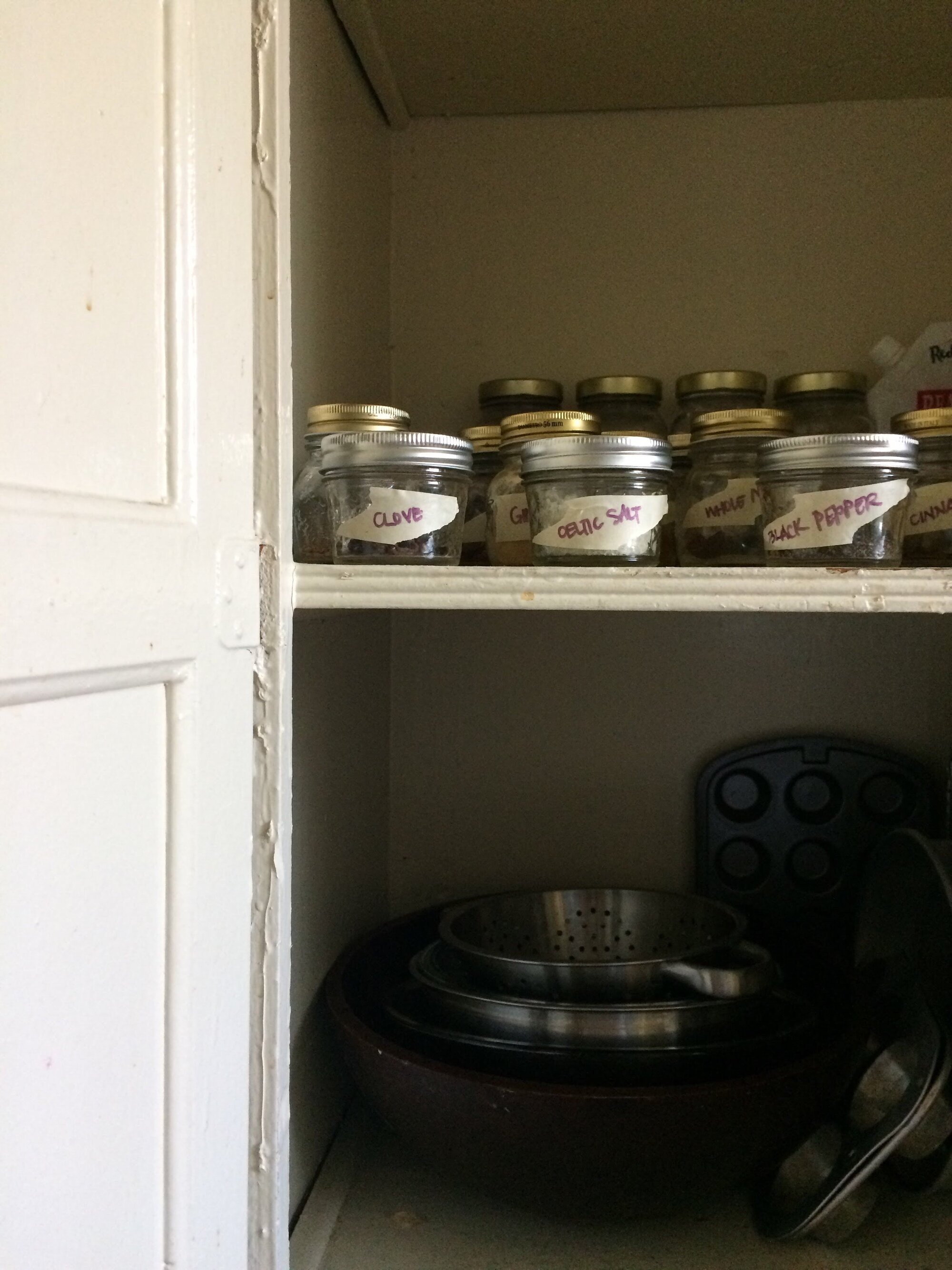
ERIN: When I think about your Instagram feed, my mind goes first to images of your kitchen—the pots on the stove, the little cream-colored tiles, the pictures of your hands turning dough. Cooking and preparing food sometimes feels like burden—and a time-consuming one at that—but what’s the relationship between simplicity and cooking like for you?
ASHLEY: In my home I prepare simple, meaningful food. Meaningful food which connects us to our culture, to our ancestors, and even to our languages. My pantry and messy kitchen notes sustain this practice. A darling cupboard on the side of my stove holds everything I need to make the food that feeds our souls. A collection of bulk spices in tiny jars and very large amounts of the staples we use in so many beautiful ways means I can pull together soul warming food at a moment’s notice. I prefer to get my hands deep in this practice, as I see you’ve noticed. I don’t own many appliances and that is on purpose. I cream, grind and mix by hand or wooden spoon. I have an immersion blender that works just fine and a stand mixer that I inherited from my grandmother. It’s the same one we stood in front of and made cake after cake when I was a little girl. And, that’s it. Call me stubborn or complicated, but simple food doesn’t really need much more than patience, a good knife, heavy pots and the best ingredients available to you. Oh, and a happy cook.
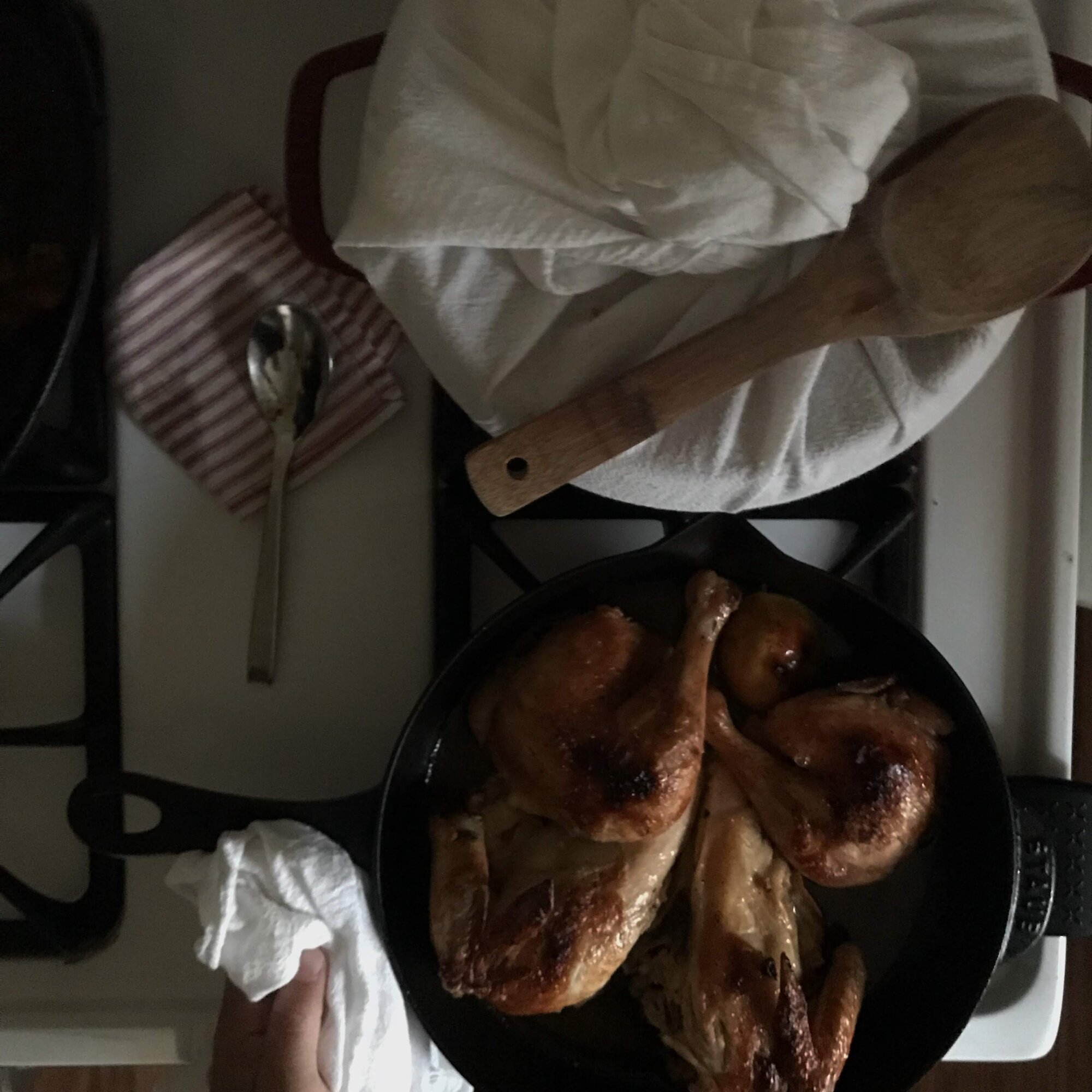
A very small curated cookbook collection perched on top of my fridge acts like a resource library for method, but I prefer to lean on oral tradition. My notes tell the stories of my childhood and my husband’s childhood. I spend more time perfecting our own traditional methods and less time experimenting with other food traditions. I make sure my children have opportunities to sit with me as I wrap savory pastries, fold flat breads, and hand peel vegetables. These are the things that they need to carry with them in their hearts long after I’m gone. And, just like when I was a little girl, and when my husband was a little boy, it will all eventually become a beautiful lingering memory when my children grow older.
I guess, everything I do in this kitchen is in some way connected to memory. I think that’s what keeps me here—the connection to memories past and the promise of new memories to come. Like the memory of my paternal aunt’s roasted chicken which has always lingered in my heart for as long as I can remember. She would rub the chicken in olive oil or butter, or both if I remember correctly. Then bathe it in the juice of fresh lemons and dust with herbs from my grandfather’s garden. I can still smell the herbs hanging to dry in the kitchen before being stored away in tiny jars that I can still see in my mind’s eye. And when she went out to the garden to snip a fresh herb here and there, I thought it was magic. I really thought it was magic. How special it was that she could just get what she needed from the land around her. And, I feel like these memories made me the cook I am today. I see the legacy of moments spent in my grandfather’s home wafting through my kitchen alongside the smell of roasted chicken and can’t help but smile every time I go to open a cabinet and my hand meets a bunch of herbs hanging, waiting to find their way into my pantry. I find myself roasting chicken just like she did. I’ve gotten in the habit of drying herbs on hooks and knobs and in sunny windows. Some herbs gathered from walks in local community gardens or gifted to me from friends. In fact, I’ve got this bunch of herbs dried under the sun in Morocco by the hands of my sweet friend’s mother. Talk about local. Talk about a story. This is the kind of good stuff that makes me happy to stand in this kitchen on even the hardest of days.
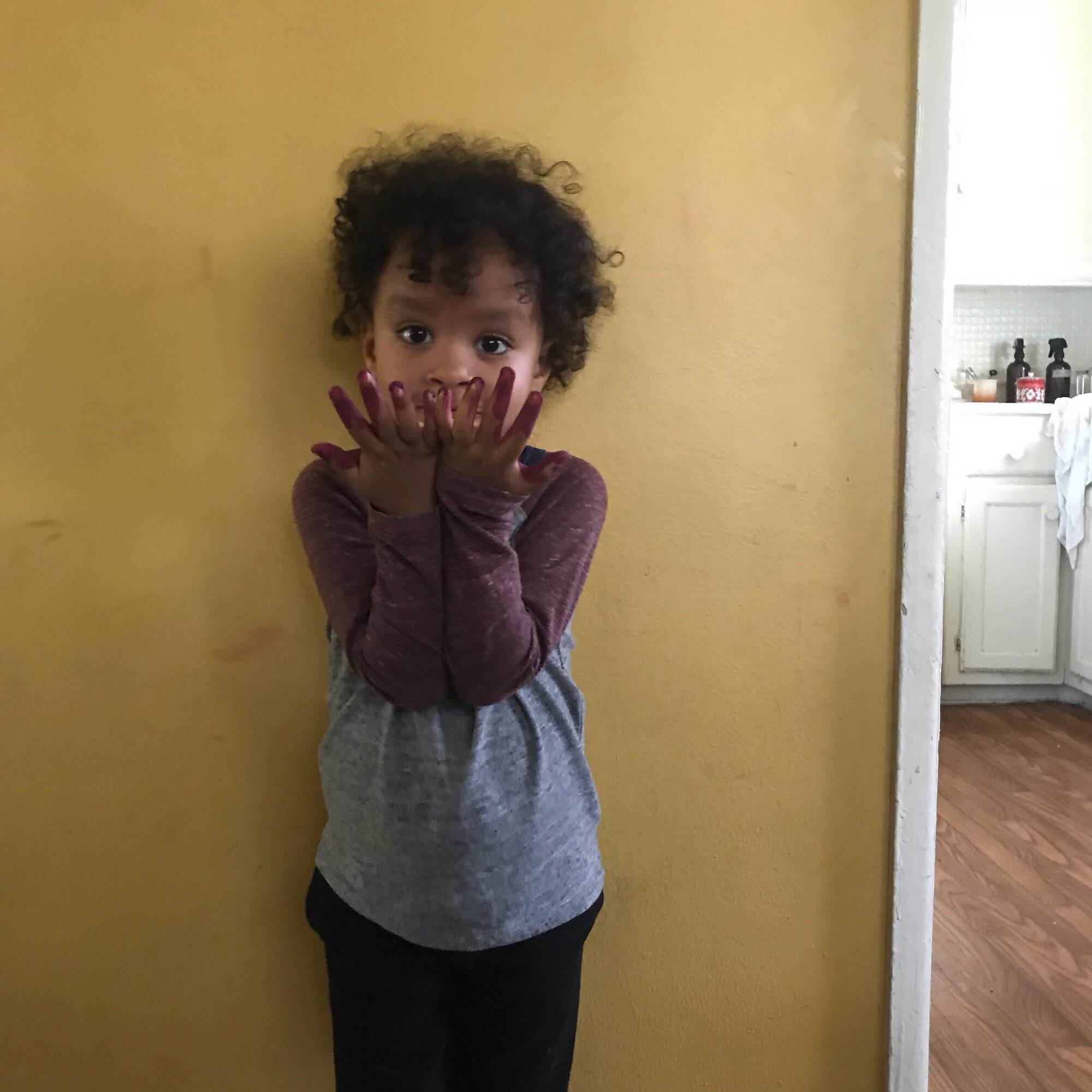
ERIN: You recently reflected a bit on your instagram feed about motherhood and how it’s changed you. For me, there are lots of ways that motherhood made the everyday logistics of my life feel more complicated, but paradoxically, there are also ways that it’s forced me to slow down and simplify. What’s been your experience?
ASHLEY: Motherhood pushes us to find solutions to what we perceive as problems, which really are just representations of a shift in who we are. I am a firm believer that no woman navigates motherhood unchanged. Same issues, new woman to a certain extent. Whether the shifts to the self are drastic or minimal, motherhood forces us to think about things in new ways. Every time anxiety takes over and I start thinking “how the heck am I going to do this?” I think about the women I served during my time working in childcare subsidy, policy and advocacy. Mothers would wrap their babies up, put them in the stroller, and take the bus for miles just to sign or submit a document and remain qualified for the childcare they desperately needed to attend school or go to work. Or, both. Talk about perspective.
So, when I have to ponder the challenges of my own experience of motherhood, I find the best solutions have been rooted in slowing down, breathing in, and taking the simple route. And, I feel like at each stage of my children’s’ development the playing field shifted. I went from a working mother with her first baby in childcare, to a stay at home mother of one, then a work at home mother of one, then of two. Throughout all of it, I have been most comforted by slowing down and living simply. Now, six years since that first baby, many of the habits and practices we adopted out of necessity remain a part of our family values by choice. They have sustained us, they have taught us what’s most important to us, and from those tiny shifts over the years we have learned so much.
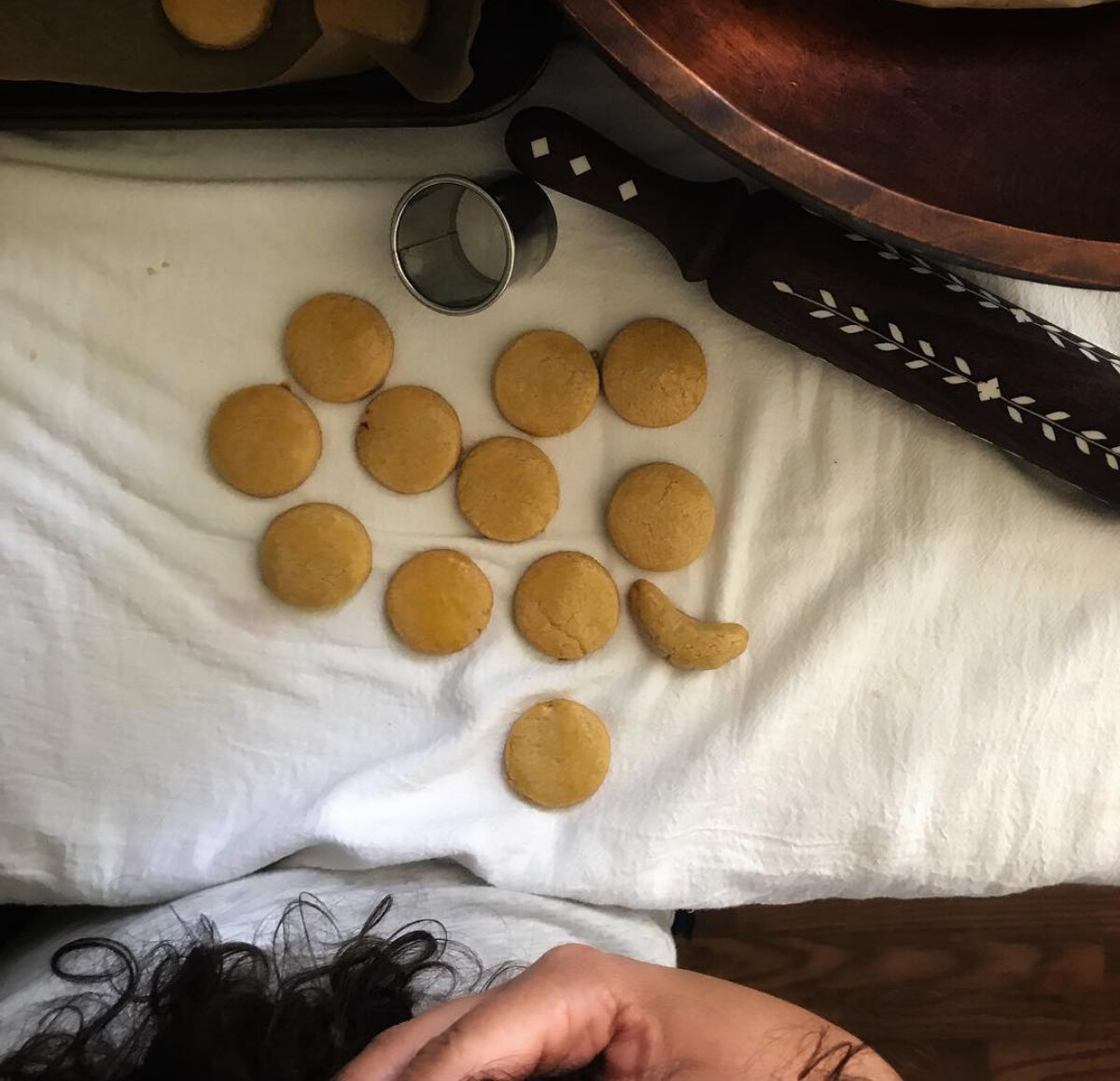
ERIN: Your feed sometimes includes stories of faith-based celebrations and I’m always especially fascinated by the slowing down that your family does around Ramadan—in part because it doesn’t often fall in a moment of the year when my own family is engaged in similar quiet moments of reflection. What kind of role, if any, does faith play for you in pursuing a simple life?
ASHLEY: Our faith inspires us in so many ways. From the way we engage with nature and the world around us, to the food we put in our body, where we spend our money, to the rhythm of our days we are deeply guided by the teachings of our faith. We are not perfect; we are human. For us, an ethical act is, a beautiful act and we strive to go about life accordingly. As you have observed, during our most blessed days such as the month of Ramadan, Eid al Fitr, and Eid al Adha, I slow down and focus my time and energy on bringing awareness to the true essence of those days—paying close attention to why we celebrate them and what we should get from them.
I feel that from an Islamic perspective simplicity is a path to much bigger things. Building a minimal stockpile of simple, beautiful things is not the gold at the end of the rainbow. At least not for us. The reward stands with the soul that surrounds itself with beauty, who is content with the simple things in life, taking only what it needs, who resists attachment to very worldly concepts such as consumerism and as a result finds contentment in the heart and a deeper connection to the Divine. And while hospitality and gift giving are both big parts of our faith, there is always a way to go about bringing those values into action while maintaining a simple and meaningful observance during the holiest of days. I think I have a pretty good idea about what that means for my family. The new traditions we create during our festivals and in our everyday actions, rooted in simplicity and a love for our faith, are planting seeds for the future. My humble wish is that all that I do reaches my children’s hearts and continues on long after I am gone. That is the type of ancestor I strive to be.
//
To see more from Ashley, follow chasingwildones on Instagram.
Photographs courtesy of Ashley May.
The Simple Matters Series is inspired in part by curiosity piqued while writing my book of the same title. I wanted to know what simple matters were for other folks. And why simplicity mattered to them in the first place. My own Simple Matters story came out in January of 2016. It’s still available where most books are sold. (Signed copies are available locally at Stories Bookshop!)

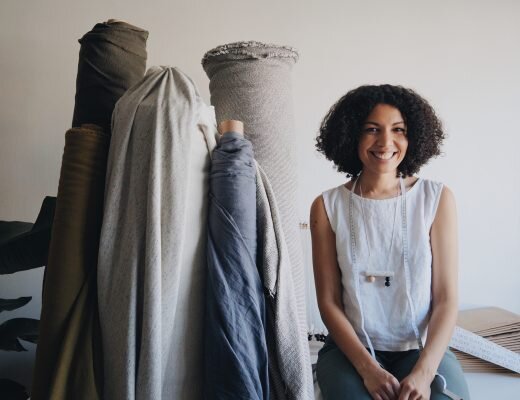

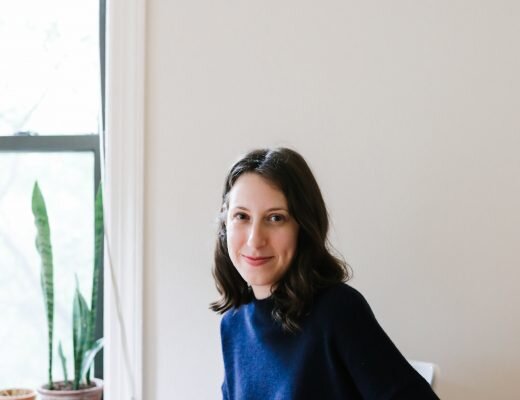
13 Comments
The Simple Matters series has always been one of my favourites and the most recent series even more so! I love Ashley’s perspective.
Thank you for reading, Anna. It means so much to hear of my words reaching hearts out there in the world.
Thank you for including diverse voices in this space. As someone from a Muslim background, who feels worried these days, even though I’m pretty secular- it’s reassuring that people like you, with a platform- are seeking these voices, and sharing them as human. Ashley’s perspective is real and special.
It’s so great to learn you read this and it touched your heart. I too am so delighted to see the way Erin has curated such a great group of voices.
This is a lovely interview of a lovely person. An inspiration for leading a more thoughtful, simple, and joyful life for sure.
Thank you Susan!
Beautiful. Spirituality has an uplifting and deepening influence in my life too. Always thrilled to read about this and the connection with daily life.
That is so nice to hear, Bri. Simplicity is so deeply spiritual for us.
This series is so lovely. It’s inspiring and hopeful, honest and true. Thank you, thank you, thank you.
“And lastly, for women who don’t necessarily hold complex identities in their hearts, but may need a healthy dose of perspective. A reminder that the sun doesn’t rise and set on their joy alone.” Thank you Ashley. The way you share is warm and magical. The way you weave meaning and truth into your words is a blessing to many.
Oh thank you Meagan for such sweet words. They mean the world to me.
So beautiful and inspiring.
Thank you Jay!
Comments are moderated.